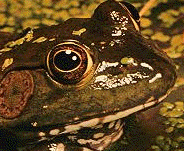


COSC 4368 --- Fundamentals of Artificial Intelligence Fall 2025
( Dr. Eick )



last updated: Dec. 3, 2025
Purpose of this Website
This website intends to satisfy the information requirements of
two independent groups:
- Students who take the undergraduate AI course
- People that want to find out what AI is,
what its subfields are,
and how its technologies, techniques, and
methodlogies can be used in industrial, government, and
research-oriented environments.
If you have any comments
concerning this website, send e-mail
to: ceick@aol.com
Basic Course Information
2024 COSC 4368 Syllabus
class meets: TU/TH 2:30-4p
class room: 232 PGH
Instructor: Dr.
Christoph F. Eick
office hours (F2F and online using 4368 MS Team): TU 8:45-10a TH 4-4:45p
office: 573 PGH
TA: Tong Zhou
TA office hour: MO&WE 2:30-3:30p
TA office: online
TA Email: tzhou20@cougarnet.uh.edu
TA: Farzana Yasmin
TA office hour: WE 4-5p FR 3-4p
TA office: online
TA Email: fyasmin2@CougarNet.UH.EDU
Lectures not taught by Dr. Eick: Th., Oct. 2; Nov. 4+6, maybe, Tu., Dec. 2.
Topics Covered in COSC 4368
The course will give an introduction to AI and it will cover Problem Solving (covering
chapter 3, 4 in part, 5, and 6 in part,
centering on uninformed and informed search, adversarial search and games, A*, alpha-beta search, and
constraint satisfaction problems), Learning (covering learning from examples (chapter 18 in part),
deep learning (extra material) and a lot reinforcement
learning (chapter 21, chapter17 in part;)), Reasoning and Learning in Uncertain
Environments (covers chapters 13, 14, 15 in part, and 20 in part, centering on basics in probabilistic reasoning,
naive Bayesian approaches, belief networks and maybe Hidden Markov
Models (HMM)).
Moreover, the course will cover Evolutionary Computing, Game Theory,
Ethics for and Societal Aspects of AI, Deep Learning centering on autoencoders, diffusion models and U-Net relying on other teaching material.
Course Materials
Recommended Text:
- S. Russell and P. Norvig, Artificial Intelligence, A
Modern Approach, Fourth Edition,
- Prentice Hall/Allyn&Bacon, December 2020,
-
Link to Textbook Homepage.
Course Elements
There will be two exams in 2025. This semester we will have 3 problem sets which contain tasks which require
programming, and tasks which use AI tools, and an essay writing task. Tasks 4 and 6 will be group tasks. Task1 and Task2 will focus
on search. Task3 will be a short task in which centers on learning classification models for a dataset. Task4 will
be a 6-week group task which centers on reinforcement learning. In Task5 you will learn to use neutral networks and diffusion models.
In Task6 you will be asked to write an essay concerning ethical or societal aspects of AI. Finally, we have group homework credit:
The students in the course will be subdivided into 14-15 groups which present (taking 12-15 minutes) solutions to homework style problems, demo AI tools or lead an AI-related discussion. Each group will have a different task!
 News COSC 4368 Spring 2024
News COSC 4368 Spring 2024

- A review list including other information has been added below under "Course Exams" for the Dec. 4 exam. Please bring your calculator to the exam.
2025 Course Organization
1. Introduction to AI
2. Search
3. Evolutionary Computing (short)
4. Game Theory (very short)
5. Reinforcement Learning
6. Supervised Learning: Basics, Decision Trees and Neural Networks
7. Introduction to Deep Learning (will cover autoencoders, diffusion models and language models)
8. AI Politics and Societal/Ethical Aspects of AI
9. Reasoning in Uncertain Environments
10. Planning (short)
Important Dates in 2025
Th., Oct. 2, 2:30p: Raunak Sarbajna will teach the lecture titled "Introduction to Supervised Learning,
centering on Neural Networks"
Th., Oct. 16, 2:30-3:45p: 4368 Midterm Exam
Tu., Nov. 4, 2:30p: Farzana will teach a Lab/Lecture centering on Diffusion Models in preparation of Task5
Th., Nov. 6, 2:30p: Raunak Sarbajna will give an "Introduction to Language Models"
Th., Dec. 4, 2:30p: Second Course Exam
2025 Problem Set Tasks
Problem Set1 (two individual tasks
centering on search)
Problem Set2 (individual task that uses decision trees
and group task that centers on reinforcement learning; 2025 World for Task4)
Problem Set3 (individual task which centers on deep learning, namely neural
networks and diffusion models and an essay writing group task)
The timeline for the six tasks are as follows: Task1: Sept. 4-Sept. 17, Task2: Sept. 18-October 4, Task3: October 7-18,
Task 4(group task): Sept. 24-November 7, Task 5: Nov. 4-24. The tentative weights of the 5 tasks are
as follows: Task1: 18%, Task2: 23%, Task3: 9%; Task4: 27%; Task5: 23%.
2025 Policies Concerning Late Submissions
Submissions up to 24 hours late receive a 8% penalty; submissions 24 hours and 1 minute to 48 hours late receive a 20% penalty,
and submissions received more than 48 hours late will not be graded and receive a score of 0.
2025 Course Exams
Thursday, October 16, 2:30p: Midterm1 Exam (2025 Review List;
October 14, 2025 Review, Solution Sketches MT2024)
Thursday, December 4, 2:30p: Final Exam in the same class rooms as the midterm exam (Final 2025 Review List (updated on Dec. 2, 2025),
Dec. 2, 2025 Review for Exam2)
2025 Group Homework Credit Tasks
2025 Groups (New; link will be removed by Sept. 9!)
Tasks (will be posted at least 5 days before the group's presentation date):
Group A will present on Th., September 11 (task can be found as a slide in search1.pptx)
Groups B and C Tasks (will present on Sep. 16+18)
Group D and E Task (will both present September 25)
Group F Task (will present on September 30)
Group G Task (will present on October 14)
Group H and I Tasks (will both present on October 30)
On Nov. 18, Group K will given an overview about the current European legal framework to regulate AI.
Group L Task (to be presented on Nov. 20)
The 4 optional topics have been assinged to the following 4 groups.
Topic W on November 11: Prepare a 12-minute demo of a text to image generator, such as DALL·E, Midjourney, or NightCafe,
and briefly discuss what is under the hood of the generator presented. Group O will present this topic
Topic X on November 13: Make a 15 Minute Presentation about AlphaGo (Silver's AlphaGo Nature Paper;
Video about the AlphaGo Paper.);it is okay if your presentation is a high-level summary of the listed video!
Group M will present this topic
Topic Y on Nov. 18: Make a presentation about Success Stories and Major Applications of Reinforcement Learning; you find tons of matrial
on this topic on the internet; e.g. Neptune.ai's RL View
Group N will present this topic
Topic Z on November 20: Lead a discussion: Should AI be more Regulated or Not? If yes, what should be regulated? Each
group member gives a 1-2 minute presentation of his/her view of this topic followed by a 15 minute in-class discussion.
Group J will present this topic
Weights of the Different Course Activities
Exams: 48% (Midterm: 23%; final exam: 25%)
Problem Set Tasks (5): 48%
Group Homework Credit: 4%
 COSC 4368 Lecture Transparencies
COSC 4368 Lecture Transparencies

- 2025 Introduction to AI and Course Information
COSC 4368 (will be used for first two lectures in 2025); see also Dr. Eick's 2019 AI Talk"!
- 2025 Search Transparencies:
- Search1 (Classification of Search Problems, Terminology, and Overview
),
Search2 (Problem Solving Agents),
Search3 (Heuristic Search, Exploration and Local Search),
Search4 (Randomized Hill Climbing and Backtracking; not covered in textbook),
Backtracking Wiki (to be discussed in review for midterm exam),
Search5: Games (credit for
almost all slides goes to ai.berkely.edu, reduced coverage in 2022),
Search5a (Brief Discussion of Bridge and
Man vs. Machine Game Contests; not initally covered in 2024),
Search6: Constraints Satisfaction Problems (credit for
some slides goes to ai.berkeley.edu),
Search6a (Dhar & Quale's paper on Dependency Directed
Backtracking (DDBT); not covered in 2024),
Search7: More on Expansion Search (only material which
centers on greedy search and A* will be covered in 2024),
Search8 (Kamil on Backtracking; not covered),
Suggestions for Solving the Rook+King vs. King Endgame (WRKBK) Problem
(not discussed in 2024).
- 2025 Teaching Material on Evolutionary
Computing (EC): EC1: Introduction
to Evolutionary Computing (by Eiben and Smith covering Chapter 3 of their book)
and EC2:Example: Using EC to Solve Travelling
Salesman Problems, Eiben-Smith Introduction to EA (they
call 'EC': 'EA'!), April 6 EA-paper Walkthrough Notes.
- 2025 Game Theory Slides: G1: Introduction to
Gametheory (USC Economics slide show
by Shivendra Awasthi (???), will be used in the lecture) and G2:
Mo Tanweer Mohammed's Introduction to Game
Theory (not used in the
COSC 4368 lecture).
- 2025 Machine Learning Coverage:
- A Gentle Introduction to
Machine Learning
- Reinforcement Learning: RL1 (Introduction to Reinforcment Learning),
Deep Reinforcement Learning: Neural Networks for Learning Control Laws
(by Steve Brunton; will watch the first six minutes of this video which introduces deep reinforcement learning, and
resume watching the video at 13:49 which discusses Alpha-Go and Other Applications of Reinforcement Learning),
Reinforcement Learning from Human Feedback: From Zero to ChatGPT (by
HugginFace; which discusses how reinforcement learning is used
to train language models, such as GPT; not covered in 2025), RL3
(Kaelbling's RL Survey Article: particularly, read sections 1, 2, 3, 4.1, 4.2, 8.1 and 9).
- Introduction to Supervised Learning (also
called "Learning from Examples")
- Neural Networks: Introduction to Neural Networks (taught on October 2, 2025),
NN1
(3blue1brown: What is a
Neural Network? (suggest you watch this video, if you did not have any exposure to NN before)),
2023 Neural Network Lecture (Dr. Eick's "old" 2023 NN slides),
NN3 (Russel's Introduction to Neural Networks,
not covered in the lecture, but you might take a look at it). Convolutional Neural Networks(CNN
CNN Article, Second CNN Article,
CNN Video for Beginners).
- 2025 Deep Learning: (Diffusion Models (Raunak's Nov. 4 Lecture; the first 35 slides were covered in the lecture; last slide has link to code); Mahin/Raunak's Language Model Lecture (was covered on Nov. 6), Mahin's Autoencoder Lecture (to be covered in the
Nov. 17 week).
The following Deep Learning slide sets will not be covered in 2025: Introduction to Generative AI (Google
DeepMind Lecture by Ruiqi Gao); Mahin's April 10, 2023 GPT Overview, Mahin's April 2024 Language Model Lecture.
- 2019 Logical Reasoning Transparencies (not covered anymore!):
- 2025 Reasoning in Uncertain Environments
Transparencies
2025 Societal and Ethical Issues of AI and AI Politics
2025 Planning Slides: Introduction to Planning (based on a lecture by Jim Blythe,
Jose Luis Ambite,Yolanda Gil; to be briefly covered in 2025)
2006/2009 Soft Computing Transparencies
A quick look to Knowledge-based Systems
Foundations of AI (quite short; to
be discussed in the last class of the semester)
2009: Topics covered and
not covered in COSC 6368.
Dec. 7, 2004 Review for the final exam;
Reinforcement Learning Videos
Please view the following 3 videos:
Siraj Raval: How to use Q Learning in Video Games Easily (7 minutes, will show the first 3:30 on February 20, 2019)
Richard Sutton: Deconstructing Reinforcement Learning (about 50 minutes)
Eric Guimarães:Demo Q-Learning in a GridWorld(2 minutes)
2019 4368 Review Solution Sketches
Solution Sketches April 8, 2019 Review for Midterm2 Exam
Prerequisites
COSC 2320 or COSC 2430.
Other Matial Related to COSC 4368
Some Summaries of
the COSC 4368 Questionnaire Responses from January 23, 2019
2002 Exam Solution Sketches
March 9, 2022 Midterm Exam A Solution Sketches
March 9, 2022 Midterm Exam B Solution Sketches
Grading
Translation number to letter grades:
A:100-92 A-:92-88 B+:88-84 B:84-80 B-:80-76 C+:76-71
C: 71-66 C-:66-62 D+:62-58 D:58-54 D-:54-50 F: 50-0
Only machine written solutions to homeworks and project reports
are accepted. Be aware of the fact that our
only source of information is what you have turned in. If we are not capable to understand your
approach or solution, you will receive a low score.
Moreover, students should not throw away returned assignments or tests.
Students may discuss course material and homeworks, but must take special
care to discern the difference between collaborating in order to increase
understanding of course materials and collaborating on the homework /
course project
itself. We encourage students to help each other understand course
material to clarify the meaning of homework problems or to discuss
problem-solving strategies, but it is not permissible for one
student to help or be helped by another student in working through
homework problems and in the course project. If, in discussing course materials and problems,
students believe that their like-mindedness from such discussions could be
construed as collaboration on their assignments, students must cite each
other, briefly explaining the extent of their collaboration. Any
assistance that is not given proper citation may be considered a violation
of the Honor Code, and might result in grade reduction, obtaining a grade of F
in the course, and in further prosecution.
2020 Reviews and Exams
Midterm1 Exam (Mo., March 2, 2020 Review List,
February
26, 2020 Review for Midterm1 Exam)
Midterm2 Exam (Mo., April 13, 2020 Review List,
April 8, 2020 Review
for Midterm2 Exam (only 40% of the review questions will be discussed on April 8!)).
Final Exam (Mo., May 4, 2p, Review List 2020 Final Exam,
April 27,
2020 Review for Final Exam, Solution Sketches May 6, 2019 Final Exam)
2021 Final Exam and Review for it
Final Exam (We. May 12, 2022 2p, First Draft of Review List 2021 Final Exam (will
be finalized by May 6 the latest,
May 3
2021 Review for Final Exam, Solution Sketches May 6, 2019 Final Exam)
Miscellaneous
Finally, Congratulations go to all 4368 students who graduated in Spring 2020
semester!!! This slide is part of the "must see"
Spring 2020 NSM Graduation Celebration video.












 News COSC 4368 Spring 2024
News COSC 4368 Spring 2024

 COSC 4368 Lecture Transparencies
COSC 4368 Lecture Transparencies
